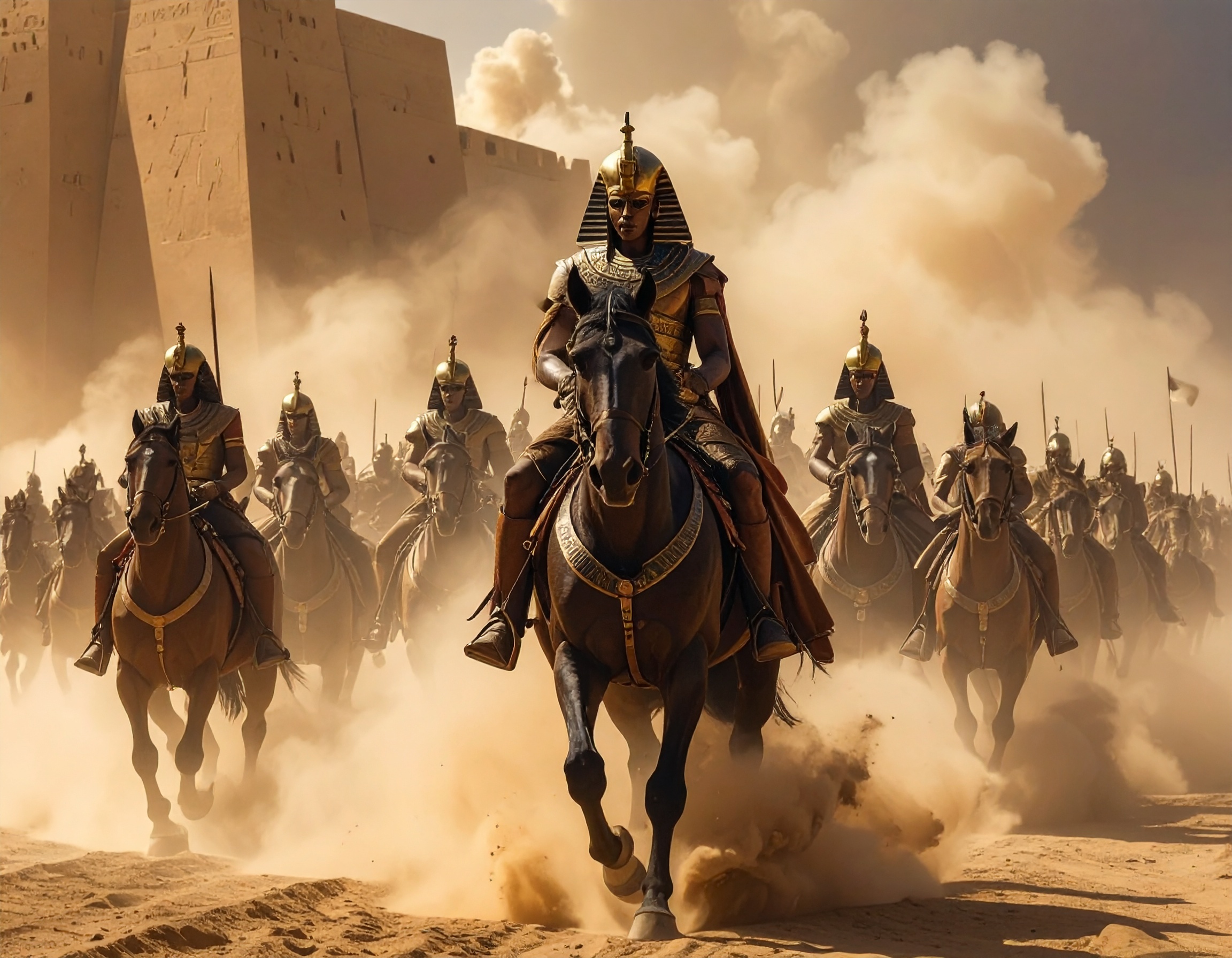“When Pharaoh drew near, the people of Israel lifted up their eyes, and behold, the Egyptians were marching after them, and they feared greatly. And the people of Israel cried out to the LORD. They said to Moses, ‘Is it because there are no graves in Egypt that you have taken us away to die in the wilderness? What have you done to us in bringing us out of Egypt? Is not this what we said to you in Egypt: “Leave us alone that we may serve the Egyptians”? For it would have been better for us to serve the Egyptians than to die in the wilderness.’ And Moses said to the people, ‘Fear not, stand firm, and see the salvation of the LORD, which He will work for you today. For the Egyptians whom you see today, you shall never see again.’” –Exodus 14:10-13
Traversing the Christian life as a redeemed sinner is an adventure fraught with pitfalls: seemingly, at times, one step forward, two steps back. But as in Bunyan’s Pilgrim’s Progress, there are the oases at critical moments in your journey to encourage and refresh your soul. The slippery slope of sin, illustrated dramatically in Psalm 73, does not always result in your sliding off a cliff but, rather, coming to the eye-opening realization of “Whom have I in heaven but You? And there is nothing on earth that I desire besides You” (Psalm 73:25).
The Exodus account of Pharaoh coming after the Israelites with his powerful and deadly army and the deliverance of all of them in such miraculous fashion are said in 1 Corinthians 10:6 to be examples for you today “to not desire evil as they did.” The valuable and necessary exercise of self-contemplation, of thinking seriously of your sin and its nature, is intended to lead you to what is called “the mortification of sin,” that is, putting your sin to death.
This may be a forty-day pre-Good Friday exercise each year or even any time in the year, but it is one that is life-long in the sanctification of a follower of Jesus who truly anticipates his soon-coming face-to-face encounter with the Savior.
Immediately upon seeing the dust of Pharaoh’s chariots coming fast behind them, the Israelites ripped into Moses for delivering them from their cruel taskmasters. At that point, they strangely preferred the bitter slavery experienced under the Egyptians to the milk and honey freedom of the Promised Land. All this because they saw the threat of Pharaoh’s army as more feared than the God they worshipped.
The purpose in introspectively considering your sin is that you might know that God is truly greater than all your sin. It is seeing the breadth and depth of your sin by an inward focus on all of it as the Holy Spirit creates an uncanny awareness. Then, and only then, you might bring it fully to the cross to be covered completely by the blood of Christ.
To the Israelites, Pharaoh was more powerful, real, and terrifying than their God who had visited all those plagues on the Egyptians, moved their slave owners to lavish them with their gold and silver, and finally let them go. Nevertheless, they could not get their eyes on God alone. They could not measure His greatness; they could not acknowledge His amazing love.
The reason for you to contemplate your sin is so that you might see the mercy of God in forgiving every single bit of it in Christ and that you would so come to hate it in seeing it for what it is in all its destructiveness. Then, you might flee to Christ for refuge.
The parting of the Red Sea and the drowning of the Egyptian army along with Pharaoh should have caused the Israelites to never again forget God. But within mere days they had, and they were whining and griping again. This is exactly what God wants to deliver you from.
If you can today grasp the gravity of your sin in the light of the cross and see and feel the reality of God’s forgiveness, then you will be moved to grasp God’s power as witnessed in the parting of the Red Sea and see Jesus, the author and perfecter of your faith, and believe that your God is the consuming fire of your sins and your enemies (Hebrews 12:28).
So, take the invaluable time to look inward, see your sin in all its various masks and deceitfulness, and set your face instead on Jesus.
“Nothing in my hand I bring, simply to Thy cross I cling. Naked, come to Thee for dress. Helpless, look to Thee for grace. Foul, I to the Fountain fly; wash me, Savior, or I die.”
(Third verse of Augustus Toplady’s hymn, “Rock of Ages, Cleft for Me,” 1776)
Stay Updated
Sign up for our monthly newsletter and weekly devotional











